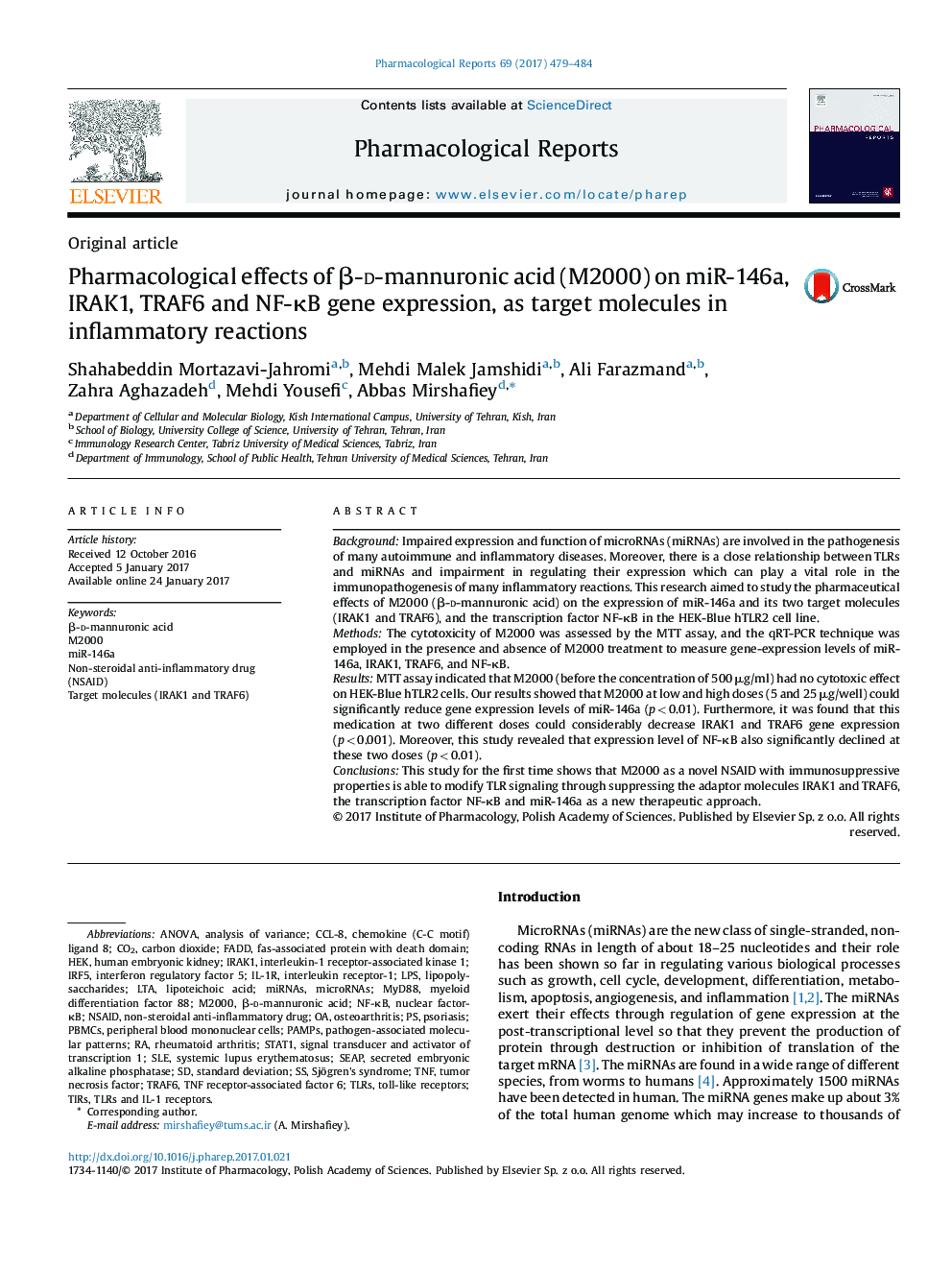| Article ID | Journal | Published Year | Pages | File Type |
|---|---|---|---|---|
| 5515072 | Pharmacological Reports | 2017 | 6 Pages |
BackgroundImpaired expression and function of microRNAs (miRNAs) are involved in the pathogenesis of many autoimmune and inflammatory diseases. Moreover, there is a close relationship between TLRs and miRNAs and impairment in regulating their expression which can play a vital role in the immunopathogenesis of many inflammatory reactions. This research aimed to study the pharmaceutical effects of M2000 (β-d-mannuronic acid) on the expression of miR-146a and its two target molecules (IRAK1 and TRAF6), and the transcription factor NF-κB in the HEK-Blue hTLR2 cell line.MethodsThe cytotoxicity of M2000 was assessed by the MTT assay, and the qRT-PCR technique was employed in the presence and absence of M2000 treatment to measure gene-expression levels of miR-146a, IRAK1, TRAF6, and NF-κB.ResultsMTT assay indicated that M2000 (before the concentration of 500 μg/ml) had no cytotoxic effect on HEK-Blue hTLR2 cells. Our results showed that M2000 at low and high doses (5 and 25 μg/well) could significantly reduce gene expression levels of miR-146a (p < 0.01). Furthermore, it was found that this medication at two different doses could considerably decrease IRAK1 and TRAF6 gene expression (p < 0.001). Moreover, this study revealed that expression level of NF-κB also significantly declined at these two doses (p < 0.01).ConclusionsThis study for the first time shows that M2000 as a novel NSAID with immunosuppressive properties is able to modify TLR signaling through suppressing the adaptor molecules IRAK1 and TRAF6, the transcription factor NF-κB and miR-146a as a new therapeutic approach.
